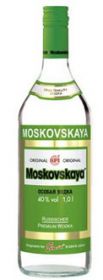 Actually the title of this piece is somewhat misleading. In my opinion, only Gin should be used in a martini, with options for olives or lemon additions depending upon the characteristics of the Gin being used. For Purists, it should ideally be Plymouth, mixed 3-1 and with a dash of orange bitters, which is how the very first original Martini was made. But I digress. This is about Vodka, not Gin.
Actually the title of this piece is somewhat misleading. In my opinion, only Gin should be used in a martini, with options for olives or lemon additions depending upon the characteristics of the Gin being used. For Purists, it should ideally be Plymouth, mixed 3-1 and with a dash of orange bitters, which is how the very first original Martini was made. But I digress. This is about Vodka, not Gin.
The first thing to appreciate is the Vodka itself. Nowadays, international distilling giants have got into the act and tried to sell us premium ‘vodkas’ such as “Grey Goose”, “Belvedere” and others. These are not vodkas. They may look like a vodka, but they are produced in countries whose alcohol production is not vodka oriented (such as France, which makes great wines and cognac, and is where Grey Goose is made, but has no real history of producing vodka) and the waters and grains of insufficient quality.
In my – very considered – opinion, the best vodka has to be made from soft water, grain, and be distilled from a country with a long tradition in the art. That reduces the options considerably, and means Russian, or Polish, with Ukrainian, or indeed most of the ex Soviet bloc qualifying. Even Kazakhstan and Mongolia make decent vodkas – the former from waters from the Altai mountains, and the latter from Siberian ice. Interestingly, although Vodka is produced all over Russia, there are differences, and here it gets down to the water.  St. Petersburg for example is surrounded by water, whereas Moscow relies on its rivers and underground springs. Yet it is Moscow that produces the better vodka, its waters are softer than those in St. Petersburg, and in taste tests I have conducted with friends, all plumped for the Muscovite hooch. Knowing your vodkas meaning knowing the area and the quality of the waters.
There are indeed many Russian vodkas to choose from that are distilled in Moscow. The excellent, if expensive Beluga is always an amazing choice, with several different varieties available. I prefer the Transatlantic, crafted in recognition of the Russian Yachting Team. Other premium brands include Cristal
whose slightly gothic skulls head vodka is excellent, if a little oddly packaged for my taste. The Moscow Crystal Distillery though dates back to 1901, and during WWII turned its distilling capabilities towards industrial strength alcohol used to supply Molotov Cocktails to citizens involved in hand to hand combat with the invading Nazis. Russian Standard produce premium brands, including one containing real gold flakes. There are some Russian premium vodka tasting websites available, see here here and an attempt by a Vanity Fair writer to taste eleven different Russian vodkas here.
At which point I should apologise to our Polish, Ukrainian and other Vodka producing cousins for leaving them off the list – its simply because I don’t know enough about them. But for everyone else, next time you’re buying, make sure its a real vodka from a country that knows how to really make them, and don’t be fobbed off with expensive premium brands from elsewhere.
Anyway, of the premium vodkas, although they are excellent, and amazing with caviar and other dishes, here we are making a cocktail. This means we can go slightly less upmarket, while still maintaining quality. Happily, all of my preferred vodkas for making cocktails with are readily available. Step forward Stolichnaya whose iconic red label can be found in many bars worldwide, Russian Standard  and Moskovskaya.



Of these, my personal preference is the Stolichnaya, as I like the slight oiliness the vodka has. However all will do an excellent job. These need to be mixed at a ratio of 7-1 with a good dry martini, and crucially, served with small pickled onions. This is because, again after much experimentation, I have come to the conclusion that as good as olives and a slice of lemon are, they are both either too herbal (olive) or citrus (lemon) to perfectly accompany Vodka.  Technically, this then makes your drink a “Gibson” rather than a “Martini” – but it is a small distinction. I find the vinegar pickle and acidity of the onion a better match with vodka.
Finally, there is one other detail. These drinks should be very large, very cold, very strong and very well made.
